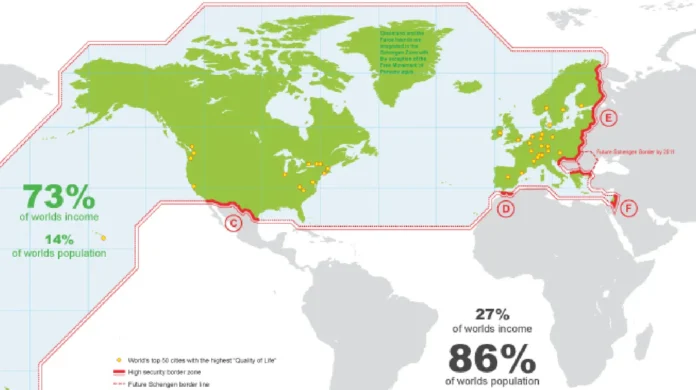.
Author: Frank Jacobs
Affiliation: Big Think
Organization/Publisher: Big Think
Date/Place: October, 2019
Type of Literature: Policy Analysis
Word Count: 1700
Link: https://bigthink.com/strange-maps/walled-world
Keywords: Walled World, Border Wall, the West, Gated Community
Brief:
Reviewing different walls between countries or societies in various parts of the world, ranging from the US-Mexico to the Israeli West Bank barrier, the author argues that a giant global wall separates the rich from the poor, and that the West is the world’s biggest gated community. Trump’s border wall is only a piece of the bigger picture of a “Walled World”. He mapped the set of states delineated from other parts of the world as a way to protect themselves from presupposed threats such as migration, terrorism, drug trafficking, and ideological enemies. However the world-wide fence, in its totality, the author asserts, is not understood by a majority of the people, but grasps glimpses of its various bits whenever they appear in the news. Despite peculiar characteristics of different defense walls, they share one ultimate end: “To keep the poor, huddled masses from the shantytowns off the manicured lawns of the First World”. This fashion of border wall annuls the idea of a globalized world without border constraints. While there were only 15 walls between countries by the end of the Cold War, there are now at least 70 walled borders worldwide, with thousands of miles of steel and concrete walls on international borders. The walled world, otherwise called the rich world, the developed world, the first world or the Western world, consists of the U.S., Canada, Japan and South Korea, Australia, New Zealand, plus basically the entire European Union (as well as Israel). The report states that in 2009 this club of nations earned 73 percent of global income but represented only 14 percent of the world’s population.
By: Jemal Muhamed, CIGA Research Associate




